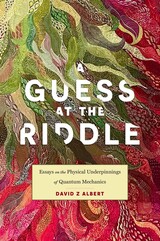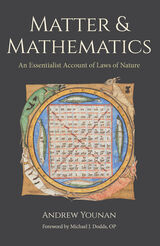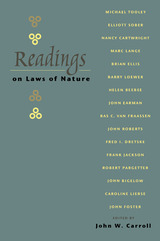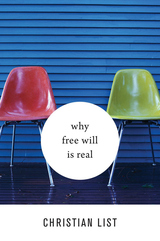
From the celebrated author of Quantum Mechanics and Experience comes an original and exhilarating attempt at making sense of the strange laws of quantum mechanics.
A century ago, a brilliant circle of physicists around Niels Bohr argued that the search for an objective, realistic, and mechanical picture of the inner workings of the atom—the kind of picture that had previously been an ideal of classical physics—was doomed to fail. Today, there is widespread agreement among philosophers and physicists that those arguments were wrong. However, the question of what that picture might look like, and how it might fit into a comprehensive picture of physical reality, remains unsettled.
In A Guess at the Riddle, philosopher David Z Albert argues that the distinctively strange features of quantum mechanics begin to make sense once we conceive of the wave function, vibrating and evolving in high-dimensional space, as the concrete, fundamental physical “stuff” of the universe. Starting with simple mechanical models, Albert methodically constructs the defining features of quantum mechanics from scratch. He shows how the entire history of our familiar, three-dimensional universe can be discerned in the wave function’s intricate pattern of ripples and whorls. A major new work in the foundations of physics, A Guess at the Riddle is poised to transform our understanding of the basic architecture of the universe.


As a subject of inquiry, laws of nature exist in the overlap between metaphysics and the philosophy of science. Over the past three decades, this area of study has become increasingly central to the philosophy of science. It also has relevance to a variety of topics in metaphysics, philosophy of mind, philosophy of language, and epistemology.
Readings on Laws of Nature is the first anthology to offer a contemporary history of the problem of laws. The book is organized around three key issues: the matter of distinguishing laws from mere correlations, questions concerning inductive reasoning and laws, and the consideration of whether there are any true laws in science.
Designed for class use, the anthology covers a remarkably broad range of views and concerns, and consists exclusively of articles that have proved highly influential in the field. Readings on Laws of Nature will also serve as a valuable research and reference tool for philosophers who do not specialize in the subject, but who have occasion to examine concepts relating to the laws of nature in their own work.

A crystal-clear, scientifically rigorous argument for the existence of free will, challenging what many scientists and scientifically minded philosophers believe.
Philosophers have argued about the nature and the very existence of free will for centuries. Today, many scientists and scientifically minded commentators are skeptical that it exists, especially when it is understood to require the ability to choose between alternative possibilities. If the laws of physics govern everything that happens, they argue, then how can our choices be free? Believers in free will must be misled by habit, sentiment, or religious doctrine. Why Free Will Is Real defies scientific orthodoxy and presents a bold new defense of free will in the same naturalistic terms that are usually deployed against it.
Unlike those who defend free will by giving up the idea that it requires alternative possibilities to choose from, Christian List retains this idea as central, resisting the tendency to defend free will by watering it down. He concedes that free will and its prerequisites—intentional agency, alternative possibilities, and causal control over our actions—cannot be found among the fundamental physical features of the natural world. But, he argues, that’s not where we should be looking. Free will is a “higher-level” phenomenon found at the level of psychology. It is like other phenomena that emerge from physical processes but are autonomous from them and not best understood in fundamental physical terms—like an ecosystem or the economy. When we discover it in its proper context, acknowledging that free will is real is not just scientifically respectable; it is indispensable for explaining our world.
READERS
Browse our collection.
PUBLISHERS
See BiblioVault's publisher services.
STUDENT SERVICES
Files for college accessibility offices.
UChicago Accessibility Resources
home | accessibility | search | about | contact us
BiblioVault ® 2001 - 2024
The University of Chicago Press









